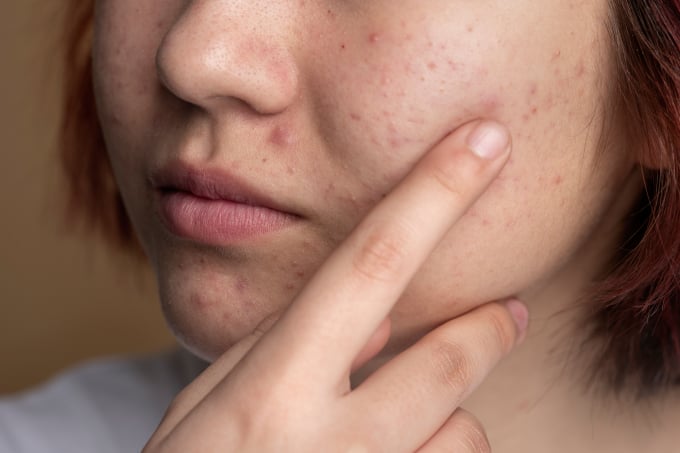I am 17 years old, my face produces a lot of oil, I have used facial cleanser and some cosmetics but it has not improved. Please advise me on how to control it. (Tuan Anh, Binh Duong)
Reply:
Oily skin is the result of sebaceous glands producing too much sebum. Common characteristics are skin that is often oily, shiny, large pores, blackheads, and acne. Oily skin is common in men, especially teenagers, and can be controlled in the following ways.
Washing your face properly every morning, evening and after exercise helps remove excess oil and dirt from your skin. Choose a cleanser for oily, acne-prone or sensitive skin, and avoid rubbing too hard as this can cause irritation. After washing your face, you can use rose water on your T-zone to balance pH and tighten pores.
Choose a light, oil-free liquid skin care product , you can combine a cleanser with a makeup remover for deep cleansing. Use a moisturizer for oily skin every day to help balance moisture and reduce sebum secretion. Use additional products containing BHA, retinoid, sulfur, niacinamide, zinc... to also avoid oil secretion.

People with oily skin are prone to acne. Photo: Freepik
Apply sunscreen when going out to prevent the harmful effects of sunlight. Choose a product that contains zinc oxide and titanium dioxide, with an SPF of 30 to 50. Do not use sunscreen that contains oil or fragrance.
Use blotting paper by pressing it lightly on your face and holding it for a few seconds to absorb excess oil. Gliding the paper too quickly will not remove all the excess oil.
Exfoliate 1-2 times a week to remove dirt, unclog pores, and prevent acne. Avoid touching your face as this can spread dirt and bacteria to your face. Only touch your face with clean hands.
Reasonable diet , limit sweet, fatty foods, dairy products, spicy foods, greasy foods. Should supplement vegetables such as carrots, tomatoes, spinach, kiwi, apples. Drink enough water to hydrate, avoid dehydration causing dry, cracked skin.
Oil production by the sebaceous glands is a normal function of the body. However, if it occurs in excess, it will adversely affect the skin.
The cause may be due to hormonal changes, often occurring during puberty, pregnancy, menstruation and menopause. The habit of eating spicy, greasy foods; stress also increases sebum production. Improper skin care; use of unsuitable cosmetics; environmental impacts; side effects of drugs (birth control pills, diuretics...) also cause oily skin.
To improve the condition, you should visit a reputable facility. The doctor will examine your skin condition and advise on appropriate care and treatment.
MD.CKI Nguyen Thi Kim Dung
Department of Dermatology - Skin Aesthetics, Tam Anh General Hospital, Ho Chi Minh City
Readers can ask questions about dermatology and cosmetic skin care here to get answers from doctors.
Source link












































Comment (0)